Project Jukebox Survey
Help us redesign the Project Jukebox website by taking a very short survey!
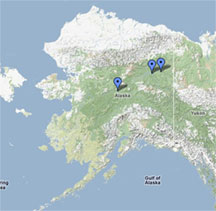 The Alaska Stakeholders and Climate Change Project Jukebox was designed to bring rural community members from Tanana, Fort Yukon, and Chalkyitsik, Alaska together with scientists at the University of Alaska Fairbanks (UAF) to discuss climate and environmental conditions and the impact these changes have on the subsistence livelihoods of people. Oral history interviews were conducted with community members in 2009 with a number of common themes resulting from the discussions. A joint meeting of these local observers and scientists was held on February 15 and 16, 2010 in Fairbanks, Alaska, where scientists gave presentations addressing the underlying issues raised in the communities, such as increase in forest fires, lakes and streams drying up, and melting of the permafrost. Working groups also gathered to further discuss specific issues. The project goals were to draw attention to changing local conditions and their impact on people’s livelihoods and to begin to bring scientific explanation to the underlying causes of conditions people are facing. We hope that the work to date has set the foundation for further documentation of conditions, discussion of the causes, and that it may also begin to serve as a reference for adaptation to changing conditions.
The Alaska Stakeholders and Climate Change Project Jukebox was designed to bring rural community members from Tanana, Fort Yukon, and Chalkyitsik, Alaska together with scientists at the University of Alaska Fairbanks (UAF) to discuss climate and environmental conditions and the impact these changes have on the subsistence livelihoods of people. Oral history interviews were conducted with community members in 2009 with a number of common themes resulting from the discussions. A joint meeting of these local observers and scientists was held on February 15 and 16, 2010 in Fairbanks, Alaska, where scientists gave presentations addressing the underlying issues raised in the communities, such as increase in forest fires, lakes and streams drying up, and melting of the permafrost. Working groups also gathered to further discuss specific issues. The project goals were to draw attention to changing local conditions and their impact on people’s livelihoods and to begin to bring scientific explanation to the underlying causes of conditions people are facing. We hope that the work to date has set the foundation for further documentation of conditions, discussion of the causes, and that it may also begin to serve as a reference for adaptation to changing conditions.
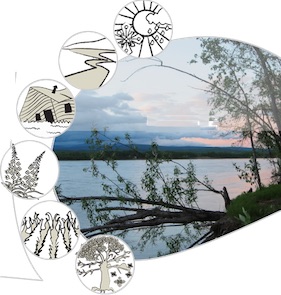 The project was sponsored by the International Arctic Research Center (IARC) and funded by the National Science Foundation (NSF). It was led by
The project was sponsored by the International Arctic Research Center (IARC) and funded by the National Science Foundation (NSF). It was led by  William Schneider, Curator of Oral History/Project Jukebox, UAF Rasmuson Library, Craig Gerlach, UAF Center for Cross Cultural Studies, David Atkinson, IARC, and Sidney Stephens, UAF Geography Department. The original Alaska Stakeholders and Climate Change Project Jukebox was completed in 2011, and was upgraded in 2020. The information in this project reflects the context of the original creation date. Some information may now be out of date.
William Schneider, Curator of Oral History/Project Jukebox, UAF Rasmuson Library, Craig Gerlach, UAF Center for Cross Cultural Studies, David Atkinson, IARC, and Sidney Stephens, UAF Geography Department. The original Alaska Stakeholders and Climate Change Project Jukebox was completed in 2011, and was upgraded in 2020. The information in this project reflects the context of the original creation date. Some information may now be out of date.
People
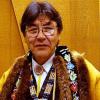 |
Clarence Alexander |
Clarence Alexander is a Gwich'in elder from Fort Yukon, Alaska. Born in 1939, he was raised at Shoo Taii (Happy Hill), which is also known as Alexander Village, located approximately 20 miles north of Fort Yukon. Clarence has spent his entire life hunting, trapping and fishing in and around Fort Yukon. Through this vast experience with traveling on the land, he developed a deep understanding of the landscape and wildlife, and has observed change in... Read More |
 |
David Atkinson |
David Atkinson was a research scientist and professor at the International Arctic Research Center (IARC) and Department of Atmospheric Sciences at the University of Alaska Fairbanks from 2004 to 2010. Since 2010, he has been a professor and department chair in the Department of Geography at the University of Victoria in Victoria, British Columbia, Canada. He earned a PhD in 2000 from the University of Ottawa that was focused on high-arctic climate issues and surface air temperature modeling... Read More |
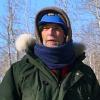 |
Charlie Campbell |
Originally from Connecticut, Charlie Campbell came to Alaska in 1975. He studied biology at the University of Alaska Fairbanks and journalism at Carleton College in Ottawa, Ontario. Charlie moved to the village of Tanana, Alaska on the Yukon River in 1980, and has been traveling the rivers and surrounding countryside ever since as a subsistence hunter, trapper, and fisherman. Charlie has gained valuable insight into river and ice dynamics in interior Alaska from his own years of observation... Read More |
 |
Richard Carroll, II |
Richard Carroll, II was born in Fort Yukon, Alaska to Eva and Richard Carroll and grew up living a traditional subsistence lifestyle of hunting, trapping and fishing. Continuing to live off the land, including running a trapline on the Porcupine River, Richard is very knowledgeable about the land and resources in the area and is a keen observer of environmental change he has seen in his lifetime. Since 1985, Richard has worked as a guide and tour operator out of Fort Yukon where he... Read More |
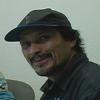 |
Harry Carroll, Jr. |
Harry Carroll, Jr. is a Gwch'in subsistence hunter and trapper from Chalkyitsik, Alaska. His parents were Jessie and Harry Carroll, Sr. of Chalkyitsik. Harry spends a lot of his time traveling and hunting in the Chalkyitsik area and so is very familiar with the land, wildlife, rivers and lakes, and weather. He is a keen observer of the environment and how conditions have changed during his lifetime. |
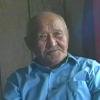 |
Simon Francis |
Simon Francis was a Gwich'in elder from Fort Yukon, Alaska. He born in 1924 to Bella and Adam Francis in Whitehorse, Canada, was raised at Old Village (John Herbert's Village), and spent much of his life on the Porcupine River. He grew up living a traditional subsistence lifestyle based on hunting, trapping and fishing. Simon was traditional chief of Fort Yukon, and was known as a skilled woodsman, trapper, river-boatman, and craftsman. In 1947, Simon married Bella Strom and together they... Read More |
 |
Nancy Fresco |
Nancy Fresco came to Alaska in 1999 and is a research professor in natural resources at the University of Alaska Fairbanks (UAF) and Network Coordinator of the Scenarios Network for Alaska and Arctic Planning (SNAP) program at UAF, where she either leads or contributes to many of SNAP’s projects. SNAP is a University of Alaska research group that provides climate projections and associated models of landscape dynamics at the local and regional level in order to help land managers and... Read More |
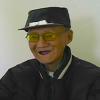 |
Joe Herbert |
Joe Herbert was a Gwich'in elder who was born in 1933 to Jennie and Sam Herbert in Fort Yukon, Alaska. He grew up living a traditional subsistence lifestyle based on hunting, trapping, and fishing. He lived most of his early years at Shuman House and then moved to Chalkyitsik, Alaska where he spent the rest of his life. Joe was an expert hunter, trapper, and carpenter, and was always willing to pass on his knowledge and help anyone in need. Joe Herbert passed away in 2011 at age 78. |
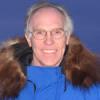 |
Larry Hinzman |
Larry Hinzman is Vice Chancellor for Research and a professor of civil and environmental engineering at the University of Alaska Fairbanks. Previously, he served as the director of the International Arctic Research Center at the University of Alaska Fairbanks from 2007 to 2015, and has been a professor of water resources. He is a specialist in environmental engineering, environmental quality science, hydrology, and ice dynamics, with a particular interest in surface and subsurface flow and... Read More |
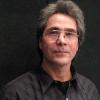 |
Tom Hyslop |
Tom Hyslop is originally from Northway, Alaska. Tom's father, Floyd, was from the Lower 48 and worked for the Federal Aviation Administration in Northway, where he met and married Tom's mother, Polly. The family moved around interior Alaska and in 1967 settled in Tanana where Tom continues to live. He is a hunter, trapper, fisherman, and dog musher who lives a subsistence lifestyle based upon living off of and traveling on the land. He has worked as a carpenter, served on the Tanana City... Read More |
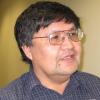 |
James Kelly, Sr. |
James Kelly, Sr. is a Gwich'in elder from Fort Yukon, Alaska. He grew up living a traditional subsistence lifestyle based on hunting, trapping and fishing. He has worked as the Natural Resource Director for the Council of Athabascan Tribal Governments, and served on the Eastern Interior Alaska Subsistence Regional Advisory Council. |
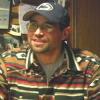 |
James Roberts |
James Roberts was born in 1970 in Tanana, Alaska. His great-grandfather was Edgar Nollner, a reknown dog musher who participated in the diptheria serum run to Nome, Alaska in 1925. His grandmother is Josephine Roberts, about whom a biography was written, Jospehine Roberts, Tanana (Curt Madison. Spirit Mountain Press for Yukon-Koyukuk School District, 1983). James grew up living a subsistence lifestyle based upon hunting, trapping and fishing, and attended the University of Alaska... Read More |
 |
Amanda Rosenberger |
Originally from Virginia, Amanda Rosenberger was an assistant professor with the School of Fisheries and Ocean Sciences at the University of Alaska Fairbanks from 2006 to 2012. She earned an undergraduate degree from Bard College at Simon's Rock in 1994, a master's from the University of Florida in 1997, and a PhD from Virginia Polytechnic Institute and State University in 2003. She also has worked at the U.S. Forest Service Boise Aquatic Sciences Laboratory, served as the Assistant Unit... Read More |
 |
Minnie Salmon |
Minnie Salmon was a Gwich'in elder born in 1932 to Julia and Ben Thomas at Salmon Village, Alaska (now Chalkyitsik) on the Black River. Minnie grew up living a traditional subsistence lifestyle based upon hunting, fishing, trapping, and berry picking and movement between seasonal camps. In 1954, she married William Salmon, Sr. and together they raised five children according to this same traditional subsistence lifestyle. Minnie focused much of her adult life on working to revitalize the... Read More |
 |
William Salmon, Sr. |
William Salmon, Sr. is a Gwich'in elder who was born to Sarah and David Salmon in Chalkyitsik, Alaska. His grandfather, William Salmon, is credited with building the first permanent structure in the village. William grew up living a traditional subsistence lifestyle based upon hunting, trapping, and fishing. In 1954, William married Minnie Thomas, and together they raised five children according to this same subsistence lifestyle. William's lifelong experience of living off the land has... Read More |
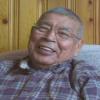 |
Paul Starr |
Paul Starr was an Athabascan elder born in 1939 to Elizabeth (Evan) and Alfred Starr, Sr. in Tanana, Alaska. He was one of ten children and grew up living a traditional subsistence lifestyle based upon hunting, trapping, and fishing. Paul spent his early childhood in Tanana and out on the trapline at Birch Creek in the Lake Minchumina area. His family moved to Nenana when Paul was about 12 so the children could attend school. He started working at a young age for a powerline company out of... Read More |
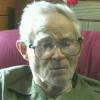 |
Fred Thomas |
Fred Thomas was born in 1919 to Margaret (Schaeffer) and Jacob Thomas in Fort Yukon, Alaska. His father arrived in the area from Wisconsin in the early 1900s working on a steamboat on the Yukon River. His mother was originally from Circle City, Alaska. Fred grew up living a traditional subsistence lifestyle of hunting, trapping, fishing, gardening, and berry picking on the Yukon and Black Rivers. Despite suffering from tuberculosis as a young man, he remained an active hunter and trapper... Read More |
 |
Sarah Trainor |
Sarah Trainor is an associate professor with a focus on fire and drought at the International Arctic Research Center (IARC) at the University of Alaska Fairbanks, and is the Director of the Alaska Center for Climate Assessment and Policy and Alaska Fire Science Consortium, where she specializes in communicating scientific information about climate change and its impacts to diverse stakeholder audiences. Sarah is an expert in climate change assessment and... Read More |
 |
Charlie Wright |
Charlie Wright is an Athabascan raised on the Yukon River near Rampart, Alaska and now living in Tanana, Alaska. He grew up living a subsistence lifestyle based upon hunting, trapping, and fishing and continues to travel the rivers and surrounding countryside as a subsistence hunter, trapper, and fisherman. He also has extensive knowledge of Athabascan traditions related to river travel and winter survival, and changing environmental conditions. Charlie has worked as a commercial fisherman,... Read More |
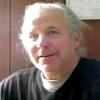 |
Stan Zuray |
Stan Zuray was born in Boston, Massachusetts in 1950 and came to Alaska in the 1970s. He first lived in a cabin on the Tozitna River, a tributary of the Yukon River, and later settled in the village of Tanana, Alaska. Stan has spent the last forty years living off the land and waters of the region and learning traditional hunting, trapping and survival skills from the local Athabascan elders. Stan is a trapper, dog musher and fisherman. He... Read More |


